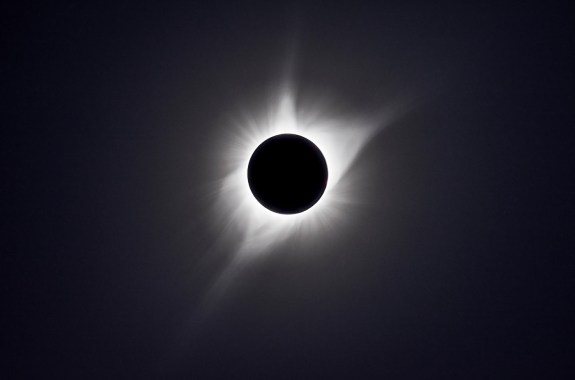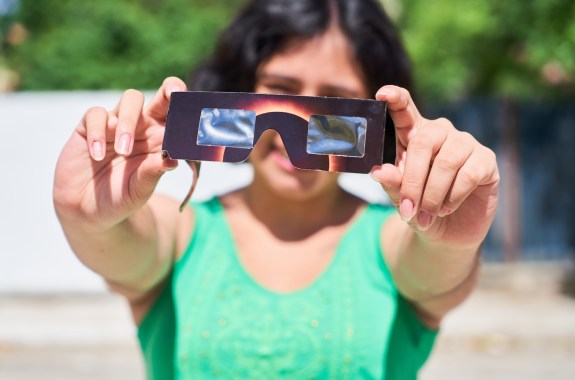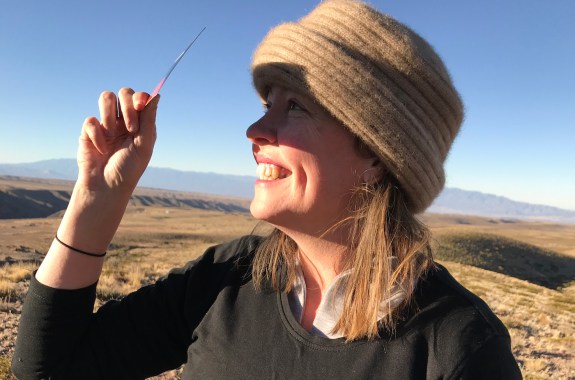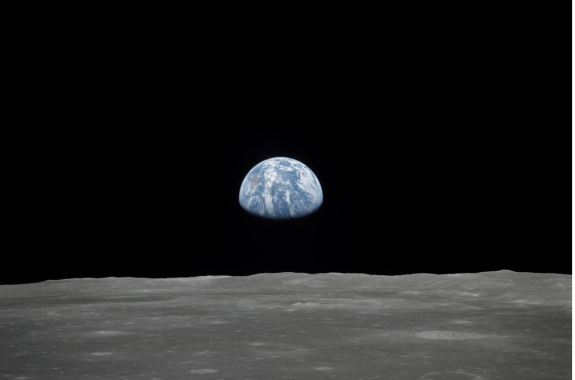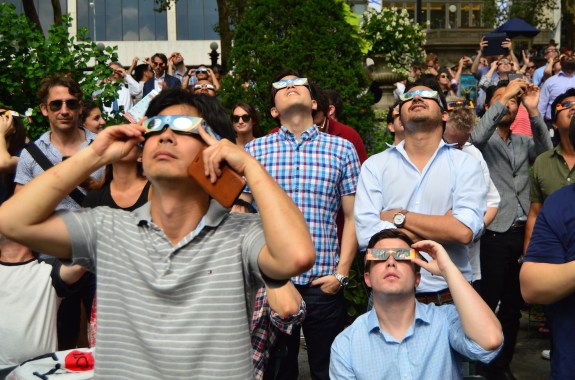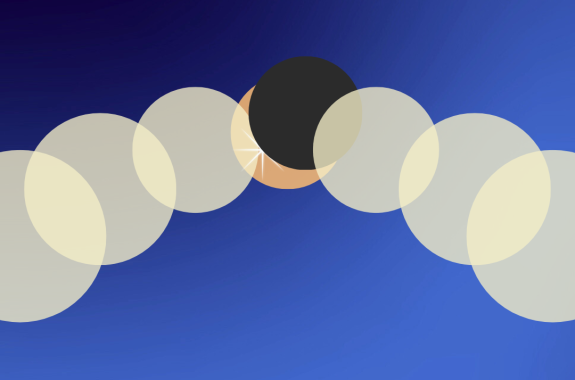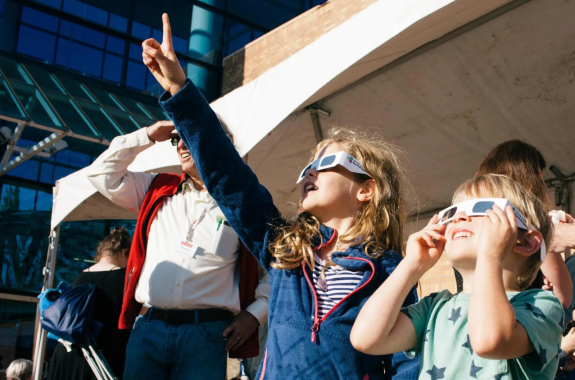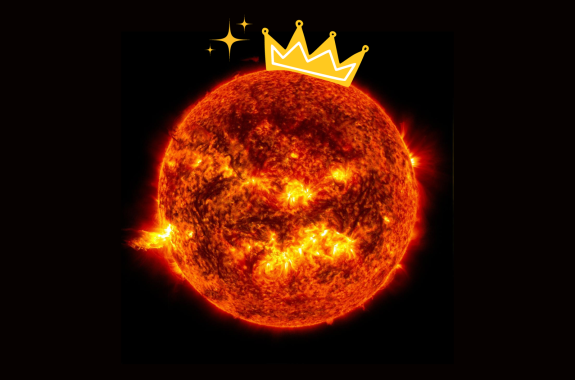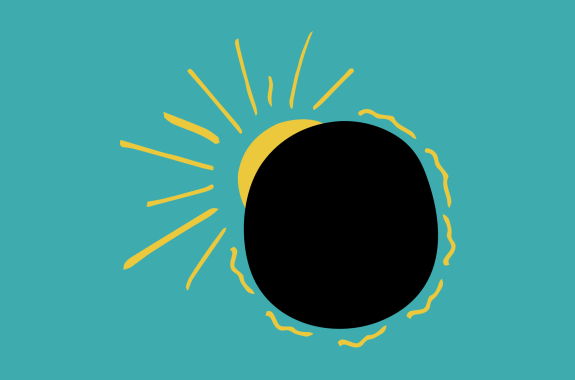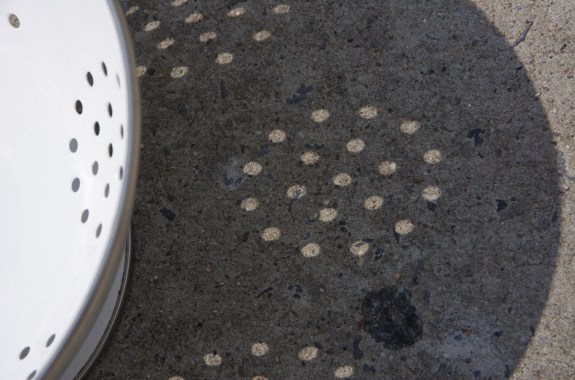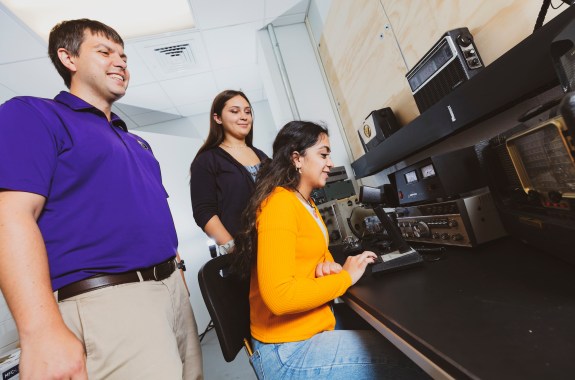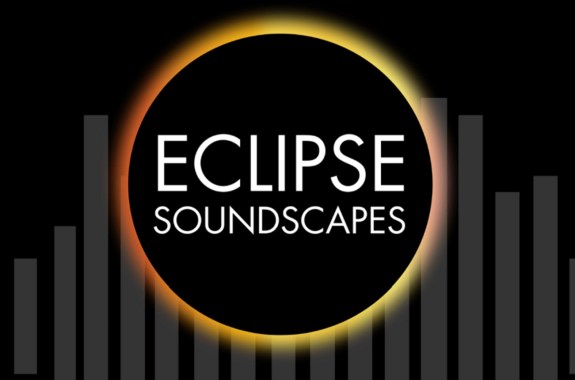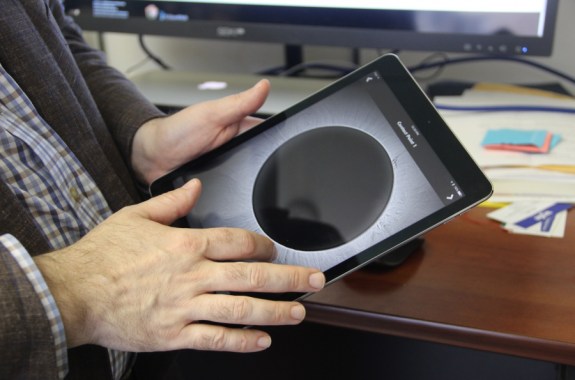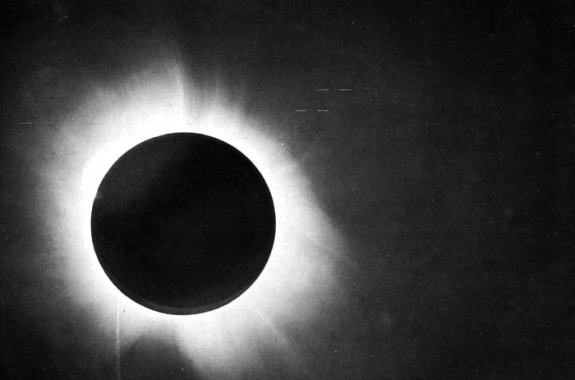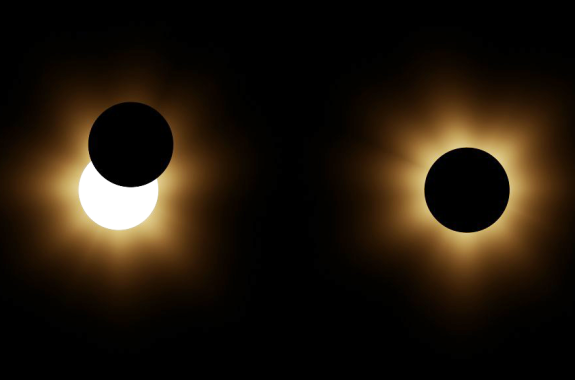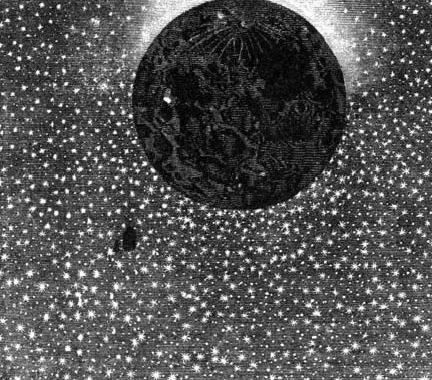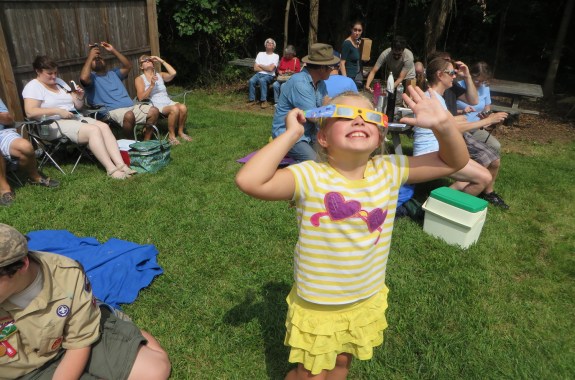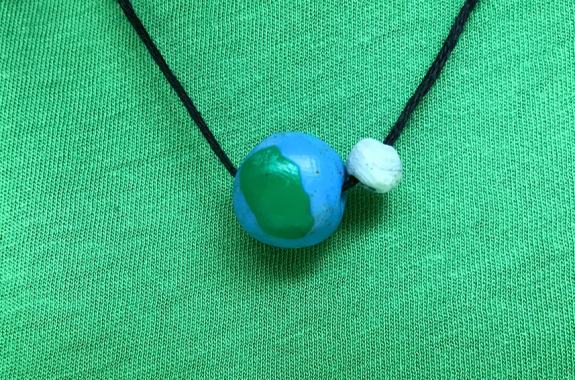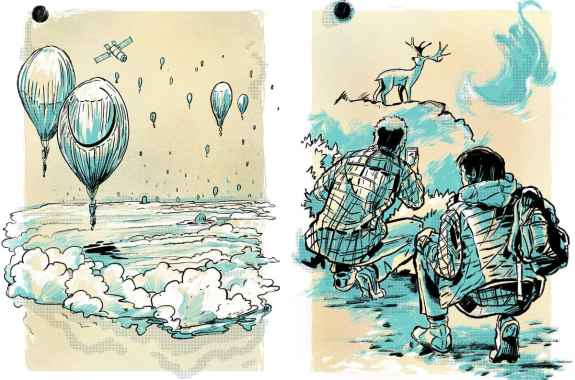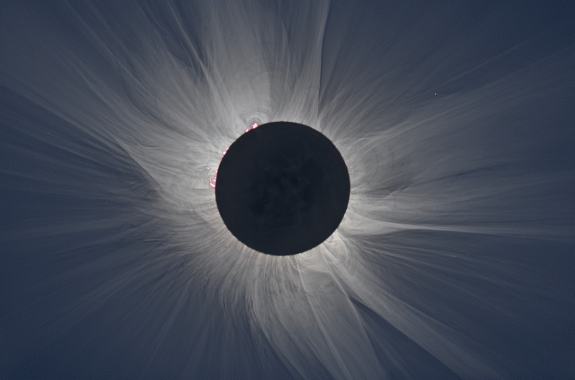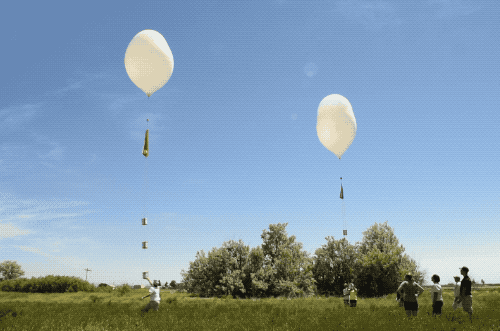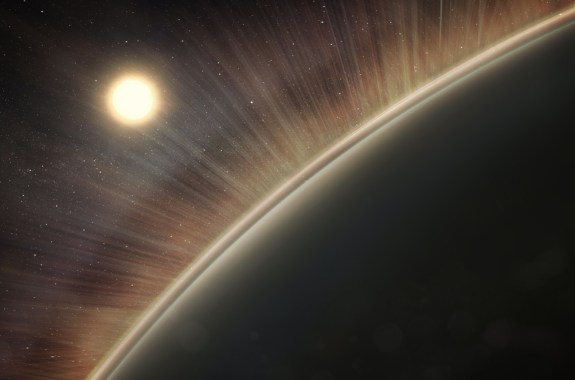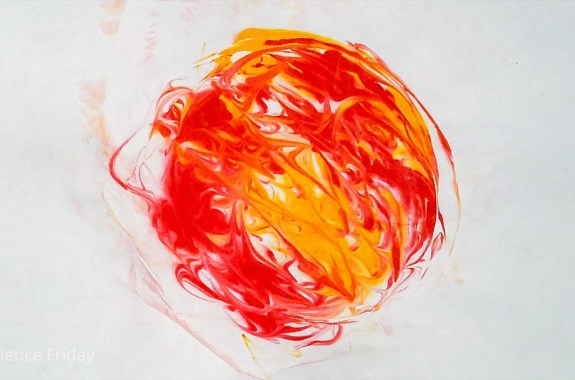Get your solar viewer ready!
16:32
Answering Your Questions About Monday’s Eclipse
On April 8, a total solar eclipse will plunge parts of North America into darkness. Scientists answer the questions you asked.
How Do Eclipse Glasses Actually Work?
A combination of materials that reflect and absorb light make it safe to look right at the sun.
A Short History Of Umbraphile Marvels And Mishaps
For some people, seeing an eclipse is a chance encounter. For umbraphiles, it’s a lifestyle. It doesn’t always work out.
Why Total Solar Eclipses Won’t Be Around Forever
It’s something of a cosmic accident that total solar eclipses happen at all. Over time, the moon’s widening orbit will make them impossible.
What Did Seeing An Eclipse Do For America?
Research from the 2017 total eclipse looked at how the awe of a natural phenomenon brought people closer together.
Prepare For The April 2024 Eclipse With ‘Moon Mail’
Prepare for this year’s eclipse with solar science, umbraphile quests, and a plan to make a lasting memory.
Participate In Science While You Watch The Solar Eclipse
Be a scientist with four easy ways to observe the total solar eclipse and report your results to researchers.
12:07
Solar Activity Flares Up In 2024
Look out for a total solar eclipse, more solar flares, and the Parker Solar Probe’s closest approach to the sun.
How Do I Safely View A Solar Eclipse?
Seeing a solar eclipse is an opportunity to be part of one of science’s most exciting phenomena. Are you ready?
¿Cómo puedo ver un eclipse solar de forma segura?
Ver un eclipse solar es una oportunidad de ser parte de uno de los fenómenos científicos más emocionantes. ¿Estás listo?
Five Ways To View The Solar Eclipse
No eclipse glasses? No problem. Here are five other ways to safely observe a solar eclipse.
Cinco maneras de ver el eclipse solar
¿No tienes gafas para eclipses? No hay problema. Aquí hay cinco maneras para ver el eclipse solar de forma segura.
How Ham Radio Operators Do Eclipse Science
Amateur radio operators are joining forces and using radio waves to understand how eclipses affect the atmosphere.
Look Stellar With A SciFri Eclipse Tank
Buy yours today before the Great American Eclipse!
8:01
How The Blind Can ‘Watch’ A Solar Eclipse
Instead of pinhole cameras and solar filter lenses, researchers are using sound and vibrations to describe the scenes on August 21 to blind and low vision eclipse chasers.
Remembering The Eclipse That Forever Changed Physics
A century ago, an eclipse proved Einstein right—and altered our understanding of the universe.
An App To Help The Blind ‘See’ The Eclipse
Eclipse Soundscapes will use real-time narration and rumble maps to help the blind experience the eclipse.
16:53
A Relatively Important Eclipse
Astronomers observed an eclipse in 1919 and found evidence for Einstein’s theory of general relativity—forever changing our understanding of the universe.
Model Eclipses
Model solar and lunar eclipses by making your own physical, proportional representations of the Earth and Moon.
When An Eclipse Meant The End Of The World
Today, a solar eclipse may be a thing of beauty, but it historically has caused panic around the world.
2:34
‘That Is Unreal!’ Experiencing The Total Solar Eclipse
On August 21st, millions of Americans stopped what they were doing and looked up. Science Friday was there.
Eclipse Party Activities
Spice up your eclipse party with these hands-on activities—and learn a little something about our Sun, Moon, and Earth in the process.
The Science Conducted Under The Darkness Of The Total Eclipse
Scientists have been spending years preparing experiments for two minutes of darkness. Here’s what they’ll be observing.
17:31
The Solar Science That Happens During A Total Eclipse
The solar eclipse provides an opportunity for scientists to study the sun’s atmosphere and polar plumes.
9:56
A View Of The Solar Eclipse From The Edge of Space
NASA Eclipse Ballooning Project hopes to livestream the solar eclipse from weather balloons across the country.
12:00
Space Trivia, and a Cosmic Trip Planner
Astronomer Dean Regas shares some of his favorite stellar facts, and offers tips for the big skywatching event of 2017: the solar eclipse.
Make A Swirling Shaving Cream Sun Model
Model our closest star, the Sun, with this crafty hands-on science activity using shaving cream and food coloring.
